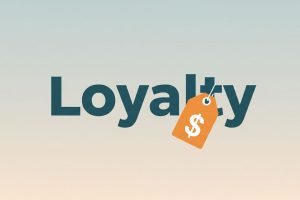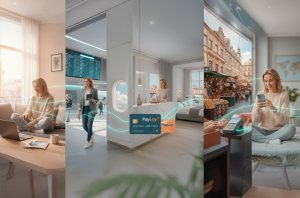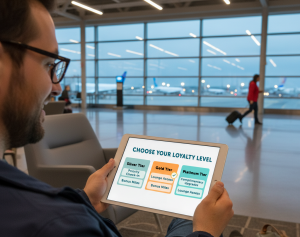Loyalty programs aren’t just about discounts or collecting points anymore. Today, they’ve evolved into smart, data-powered platforms that guide customers through a journey of discovery and genuine value. By weaving in targeted loyalty program cross-selling and upselling strategies, businesses can boost revenues, build stronger customer relationships, and create a personalized shopping experience. By harnessing these strategies effectively, brands can turn loyalty programs into growth engines rather than just reward systems.
At LPS, we build loyalty platforms that fit seamlessly into your customers’ journeys. We harness data analytics, omnichannel engagement, and cutting-edge technology to transform traditional loyalty programs into engines for revenue growth. In this post, we’re diving deep into how you can implement effective loyalty program upselling and cross-selling tactics that drive extra revenue—all backed by our hands-on experience.
The Evolution of Loyalty Programs
Remember when loyalty programs were just about collecting points? Well, that’s a thing of the past. Today’s programs create personalized pathways that encourage customers to explore more products or services at just the right time. Research shows that companies can see revenue increases from 10% to 30% when they mix in strategic loyalty program cross-selling and upselling. If your are looking for starting a loyalty program you can find more information in our previous article with a step-by-step guide for lasting retail loyalty programs.
Modern loyalty solutions leverage customer behavior data, purchase history, and real-time insights to serve up offers that truly resonate. This not only increases average order values but also transforms a basic loyalty program into a strategic revenue driver.
Data-Driven Personalization: The Foundation for Cross-Selling and Upselling
Effective cross-selling and upselling start with harnessing customer data smartly and strategically. Today’s best loyalty programs rely on advanced data analytics to segment customers accurately and provide personalized offers. Here’s how businesses can use data-driven tactics to boost revenue with loyalty programs:
- Predictive Analytics: By looking at past purchase behavior, you can forecast which products or services your customers might be into. For example, if someone just bought a camera, why not suggest compatible accessories at the perfect moment?
- Behavioral Triggers: Automated notifications—through email, SMS, or app alerts—can prompt additional purchases exactly when customers are ready for them. Imagine a customer nearing a loyalty tier upgrade; a timely upsell offer feels natural and rewarding.
- Hyper-Personalization: With machine learning on your side, loyalty programs can adjust offers in real time. If a customer consistently goes for premium products, the system might nudge them toward a higher loyalty tier with exclusive benefits.
Using these approaches not only improves the personalization of your offers—it also avoids that pushy sales vibe.
Omnichannel Integration for a Consistent, Engaging Experience
Today’s customers expect the same great experience whether they’re shopping online, in-store, or via mobile. An omnichannel approach helps build trust and ensures that cross-selling or upselling messages are recognized and acted upon.
Imagine this: a customer shops in-store, then receives an SMS about an online-exclusive bundle, and later checks the loyalty app for location-based offers. Adding gamification elements like points, badges, or progress bars can make this experience fun, naturally opening up more opportunities for upsell and cross-sell.
Leveraging Emerging Technology for Future-Ready Loyalty Programs
- AI and Machine Learning: Modern recommendation engines predict the best offers based on your customers’ data, refining their suggestions with every interaction. These AI-powered systems are key to unlocking the full potential of loyalty program upselling and helping to increase sales loyalty program strategies.
- Augmented and Virtual Reality: Imagine letting your customers try on products virtually before they buy! These immersive techniques can drive interest in premium or complementary products.
- Chatbots and Virtual Assistants: These friendly helpers can navigate customers through product options in real time, offering guidance that makes cross-selling and upselling feel more like genuine recommendations.
These technologies require proper implementation to maximize their benefits and ensure customer satisfaction. LPS, as a supplier, is constantly monitoring the technological space and adapting to implement new advancements when they can be relied upon to stay ahead of the curve, ensuring ongoing revenue growth without causing negative impacts.
Best Practices for Integrating Cross-Selling and Upselling
Setting up a successful loyalty program that drives revenue through cross-selling and upselling is all about strategy. Here are some practical tips:
Use Advanced Analytics
Build a Multi-Tiered Program
A tiered loyalty program rewards customers for milestones, inviting them to reach higher levels with even better benefits. Think of airlines that clearly map out the perks of flying premium in economy versus business class. Adding gamification elements like progress bars keeps the journey engaging.
Multi-tiered loyalty programs not only incentivize customer engagement but also strategically drive cross-selling and upselling opportunities. By offering distinct benefits at each tier, these programs encourage customers to explore a broader range of products and services, thereby increasing overall sales. Furthermore, the allure of elevated privileges, such as enhanced comfort and premium experiences, motivates customers to upgrade—transitioning from economy to business class more frequently.
Maintain Omnichannel Consistency
Personalize Every Interaction
Measuring Success and Adjusting Strategies
Driving revenue with advanced loyalty tactics isn’t a one-and-done deal—it’s a continuous journey. Set clear key performance indicators (KPIs) to see what’s working. Look beyond simple transaction counts by tracking changes in average order value, cross-category purchases, and the pace of tier progression.
Using multi-touch attribution models can help pinpoint which elements of your loyalty program are delivering the most value. This kind of data-backed analysis ensures you’re not just implementing changes, but that you’re refining your strategy based on real results.
Real-World Examples and Industry Insights
Many businesses have transformed their loyalty programs into revenue powerhouses. For example, airlines like Virgin Atlantic or Air Baltic used AI-driven upselling strategies that significantly boosted their ancillary revenues. Similarly, retailers like KFC or Starbucks, who added gamification elements regularly see notable improvements in customer engagement, making upsell messages feel like a natural part of the shopping journey.
Studies—including one of Forrester Research —have found that advanced loyalty programs using cross-selling and upselling can increase revenue by between 10% and 30%. When these tactics are grounded in real-time insights and personalized data, the offers come off as genuine help rather than aggressive selling.
Looking Ahead: Future Trends in Loyalty Programs
As consumer expectations continue to evolve, so will loyalty programs. Expect even more personalized, immersive experiences through deep CRM integrations, ethical AI practices, and transparent data policies. We’re also seeing a growing trend towards incorporating sustainability into loyalty programs—with eco-friendly product options and carbon-offset upgrades, for example.
For more insights into emerging trends and actionable advice, visit other articles from our Knowledge Hub.
Conclusion
Loyalty programs have truly come a long way and now serve as dynamic platforms capable of boosting revenue through advanced cross-selling and upselling. With a focus on data analytics, omnichannel consistency, and emerging tech, businesses can craft loyalty experiences that naturally guide customers toward higher-value purchases. This personalized touch not only makes customers happy but also drives increased lifetime value.
At LPS, we’re all about balancing revenue targets with genuine customer value. If you’re ready to start harnessing the full potential of loyalty-driven cross-selling and upselling, explore our consulting services or drop us a message via our Contact page.
Embrace the future with strategies that truly resonate with your audience and drive measurable business results.






